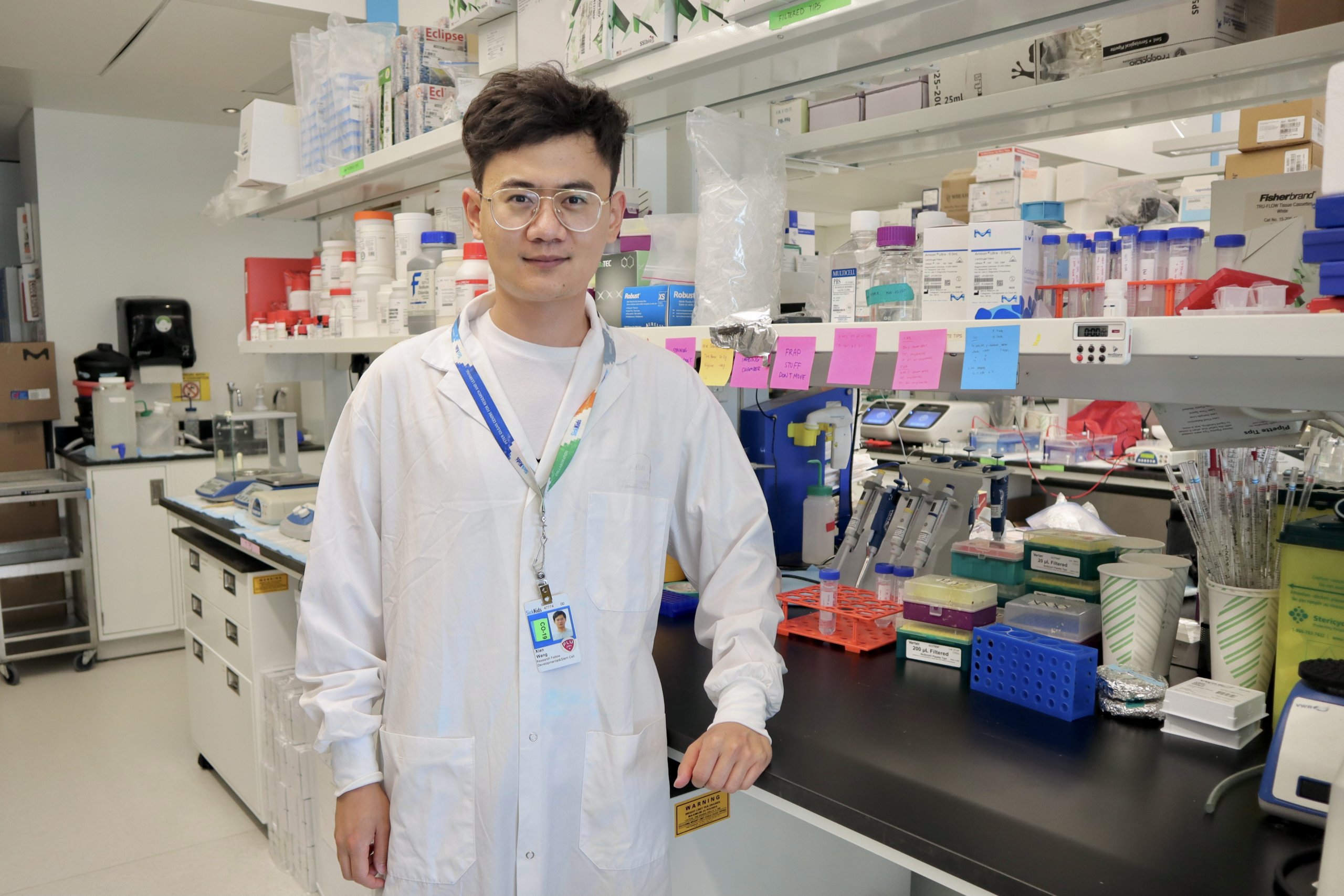Xian Wang – 2021/2022 DUNN with Cancer Brain Tumour Research Fellowship
 Xian Wang
Xian Wang
Postdoctoral Research Fellow at the Hospital for Sick Children, Toronto, ON
Project Entitled: “Targeted mechanical ablation of Glioblastoma using spationtemporally controlled magnetic carbon nanotubes”
Project Summary:
Glioblastoma (GBM) is the most aggressive type of cancer that begins within the brain. Despite maximum treatment of surgery, chemotherapy, and radiation therapy, the typical duration of survival following diagnosis is only 12 to 15 months.
Despite the high morbidity and mortality rate, since FDA approval of using the chemotherapeutic agent temozolomide to treat GBM (which extends patient survival for ~2 months) in 2005, all subsequent clinical trials that target various signaling molecules failed. A unifying resistance mechanism emerges: suppressing one or a few proteins or pathways provides a fertile ground for alternative, non-targeted biochemical signaling mechanisms to fuel GBM growth. In other words, this “Whack-A-Mole” approach failed for 16 years.
I propose an out-of-the-box approach, to physically destroy cancer cells using high precision magnetic control and biocompatible magnetic carbon nanotubes (mCNTs). I hypothesize that magnetic mobilization of functionalized magnetic carbon nanotubes mCNT is an effective targeted approach for treating GBM resistant to current treatments. The aims of this project include adding antibody on the mCNT surface for targeting tumour cells while leaving the healthy cells unharmed, and establishing treatment efficacy in treatment resistant tumour. My project will expand the treatment options available for this insidious and lethal disease.
Impact of Receiving Award
Being awarded the DUNN with Cancer Brain Tumour Research Fellowship motivates me to continue my exploration of novel treatment approaches for brain tumour. The support from the fellowship not only supports my current project on developing mechanical treatment approach for chemotherapy resistant brain tumour, but also inspires me to develop my career on inventing novel tumour treatment approaches.
I completed my Ph.D. on Mechanical Engineering studying microrobots and their application to medicine. Microrobots have the advantage for accessing small and hard-to-reach spaces with their small size. While extensive research has showed their application as a drug delivery platform, how microrobotics can be applied to realize minimally invasive treatment is much less explored. Becoming a postdoctoral fellow at The Hospital for Sick Children and supported by the fellowship enabled me to work with and learn from world-renowned neurosurgeons and tumour biologists. I have and will continue to apply my interdisciplinary knowledge to develop minimally invasive treatment approach to treat brain cancer using microrobots.
I am really greatful to the Dunn family and friends, and Brain Tumour Foundation of Canada for making this possible. Together, we will work towards the same mission, making brain tumour treatable and eventually curable.
May 2022 Update
Progress Report
September 2022 – (PDF)
Final Report: April 2023
With the support from Dunn with Cancer Brain Tumour Research Fellowship, I was able to make progress in exploring the mechanical ablation of glioblastoma at the Hospital for Sick Children. In the past year, I explored the distribution of mCNT within the GBM cells and within the GBM tumor in vivo to decipher the treatment mechanism after successfully showed the treatment is effective for prolonging the survival time of GBM-bearing tumor.
We have our paper covering the mechanical ablation method for the treatment of glioblastoma submitted to the Journal named Science Advances. In the past year, we have finished the peer-review and revision process. The paper is currently accepted and will be online later this month. Science Advances is one of the best interdisciplinary journals, and the journal is open-access to everyone.